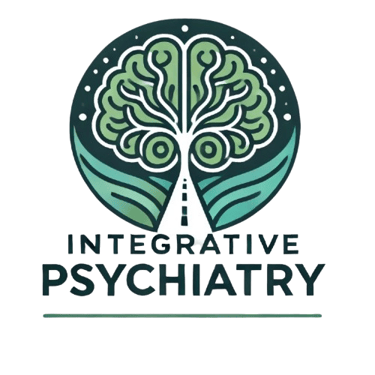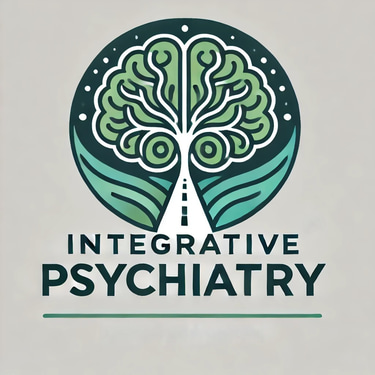Beyond Medication: A Holistic View on Treating ADHD
For many, an ADHD (Attention-Deficit/Hyperactivity Disorder) diagnosis brings a mix of relief and questions. While medication is often presented as the primary treatment option, it's not the complete picture. A holistic approach to ADHD doesn't necessarily exclude medication, but it expands the toolkit to create a more comprehensive and sustainable path to focus and balance. This approach looks "beyond the pill" to address the physiological and lifestyle factors that can profoundly impact ADHD symptoms.
5/8/20242 min read


Is It Just ADHD? The Importance of a Deeper Look
A key part of a holistic view is ensuring that what looks like ADHD isn't actually being caused or worsened by an underlying condition. A holistic psychiatrist will investigate potential contributors, such as:
Nutrient Deficiencies: Low levels of iron, zinc, and magnesium can all impact dopamine pathways and executive function.
Sleep Issues: Undiagnosed sleep apnea or poor sleep quality can lead to daytime inattention and hyperactivity.
Blood Sugar Imbalances: The highs and lows of blood sugar can cause "brain fog," irritability, and difficulty concentrating.
Gut Health: The gut-brain axis is a powerful connection. Inflammation in the gut can lead to inflammation in the brain, impacting neurotransmitter function.
Core Components of a Holistic ADHD Treatment Plan
A holistic plan is personalized but often incorporates the following powerful strategies:
1. Optimizing Nutrition for a Focused Brain:
The brain needs specific fuel to function well. A holistic plan often emphasizes a diet rich in protein for sustained energy and healthy fats like omega-3s to support brain cell health. It also focuses on reducing or eliminating sugar and artificial additives that can exacerbate hyperactivity in some individuals.
2. The Role of Targeted Supplementation:
Based on lab testing or clinical evaluation, specific supplements can be powerful allies. Zinc, iron, and magnesium are critical in producing the neurotransmitters targeted by stimulant medications. High-quality fish oil (omega-3s) has also been shown in numerous studies to support cognitive function.
3. Harnessing the Power of Exercise:
If there were a single non-medical therapy for ADHD, it would be exercise. Physical activity—especially complex activities like martial arts or yoga—has been shown to increase levels of dopamine and norepinephrine, improving executive function and focus. For a brain that craves stimulation, movement is medicine.
4. Mindfulness and Behavioral Strategies:
Holistic treatment also equips you with practical skills. Mindfulness training can help improve attention and reduce impulsivity. This is combined with essential behavioral strategies for organization and time management to navigate the challenges of daily life with ADHD.
Medication in a Holistic Context
A holistic approach is not an anti-medication approach. For many, medication is a necessary tool that creates the stability needed to build these other healthy habits. The difference is the goal: medication can be part of the solution, but it isn't seen as the entire solution. The aim is to build a foundation of health so that the lowest effective dose of medication is used, and in some cases, may not be needed long-term.
By looking beyond the label and treating the whole person, holistic psychiatry offers a robust, empowering, and more complete way to manage ADHD and unlock your full potential.
Integrative Psychiatry
Location
45 South Main Street
Suite 111
West Hartford CT 06107
Phone Number
860.615.3629
959.236.5722
support@drzelisko.com


